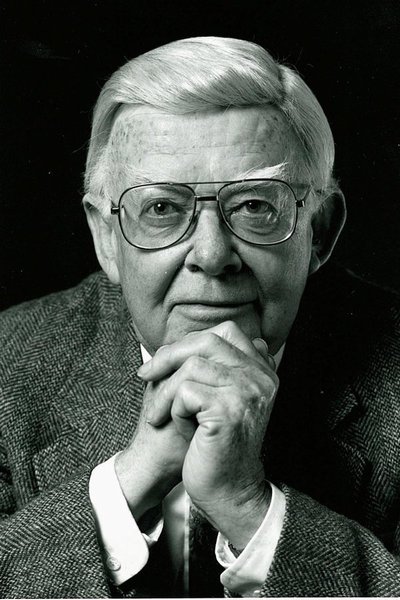August 19, 2010
Late UW pediatrician Dr. Robert Deisher advocated for street kids and disabled youth
Dr. Robert W. Deisher, professor emeritus of pediatrics, Division of Adolescent Medicine, and a local and national advocate for street teens and disabled youth, died Aug. 10. He was 89.
A dessert potluck will be held in his memory from 2:30 to 5 p.m., Sunday, Aug. 22 at The Hearthstone, 6720 East Greenlake Way North in Seattle. All are welcome. The family would appreciate photos and stories about Dr. Deisher for their scrapbook.
He will also be remembered at the First Annual Diesher Lecture 8 a.m. , Thursday, Sept. 23, in Wright Auditorium at Seattle Children’s. Guest speaker Dr. Vic Strausburger will discuss “Risky Business: What Every Pediatrician and Parent Should Know about the Effects of Media on Adolescents. ” Strausburger is chief of the Division of Adolescent Medicine at the University of New Mexico School of Medicine.
Dr. Deisher was dedicated to helping troubled teens — those who were homeless, runaways, alienated, neglected, involved in prostitution, or incarcerated. He also sought private and government support for social services for gay youth, and opened one of the first counseling centers for sexual minorities in Seattle.
Based on his conversations with street youth to understand their living conditions, in 1973 he started the Pioneer Square Youth Clinic to provide free medical services to homeless teens and young adults.
At the age of 75, Dr. Deisher created programs for girls who were homeless and pregnant. He secured a grant for a nurse and social worker to do street outreach and assist the girls in finding health care, housing, nutrition, and social services.
Earlier in his career as one of the first faculty members in the UW Department of Pediatrics, Dr. Deisher became concerned that future pediatricians were receiving most of their training learning specialized care in hospitals. In the 1950s he obtained a grant for a demonstration project for well-child care. Staffed by a physician, nurse, social worker, and dentist, the Well Child Clinic provided pediatric care for the families of students housed at Union Bay Village and a place for UW health sciences students to get clinical experience.
In the late 1960s Diesher was instrumental in the establishment of the UW Child Development and Mental Retardation Center (now the Center on Human Development and Disability). At the time, most children with moderate to significant developmental disorders, such as autism and Down syndrome, were institutionalized. No one with an IQ under 70 was allowed to attend public school. Deisher proposed a school on the UW campus as well as a clinic.
The proposal for the center was nationally funded by the Children’s Bureau. Impressed with Dr. Deisher’s dedication and innovative approaches to improving the lives of young people with developmental disabilities, the Kennedy Administration invited him to a White House Conference on Children and Youth.
Dr. Deisher was born Aug. 20, 1920 in Lombardville, Ill. As a boy growing up in the Great Depression, he enjoyed helping his grandfather on his farm a half-mile away from his parent’s house. In his rural hometown of 60 people, he attended a one-room school house with two students. He studied history at Knox College with the intention of becoming a teacher.
As World War II approach, his career direction turned and he entered medical school at Washington University in St. Louis. With many doctors deployed during the war, the medical demands on the home front meant that Dr. Deisher and his fellow housestaff resided at the hospital and took all their meals in the hospital cafeteria.
Dr. Deisher trained in pediatrics at St. Louis Children’s Hospital, where he met his future wife, pediatrician Dr. Elizabeth Bryan. Six months before the war ended, his training was interrupted when was inducted into the army and sent to Korea.
After his military service, he finished his residency, married Dr. Bryan, and together they packed up the car and drove to the Pacific Northwest. They had neither a prospect of employment nor money to start a private practice. The then newly founded UW School of Medicine hired him in 1949.
“Teaching and mentoring at the UW have been among the most enduring accomplishments of Dr. Deisher’s academic career,” wrote biographer Dr. Will Rogers. “He came to be valued by as a sagacious sounding board, a trusted advisor, a pragmatic philosopher, and an avatar of social conscience. He always found time for impromptu one-on-one tutorials. If the world of a teacher finds its ultimate expression through his or her students, Dr. Deisher’s legacy will continue to unfold to the benefit of our society for a very long time.”



